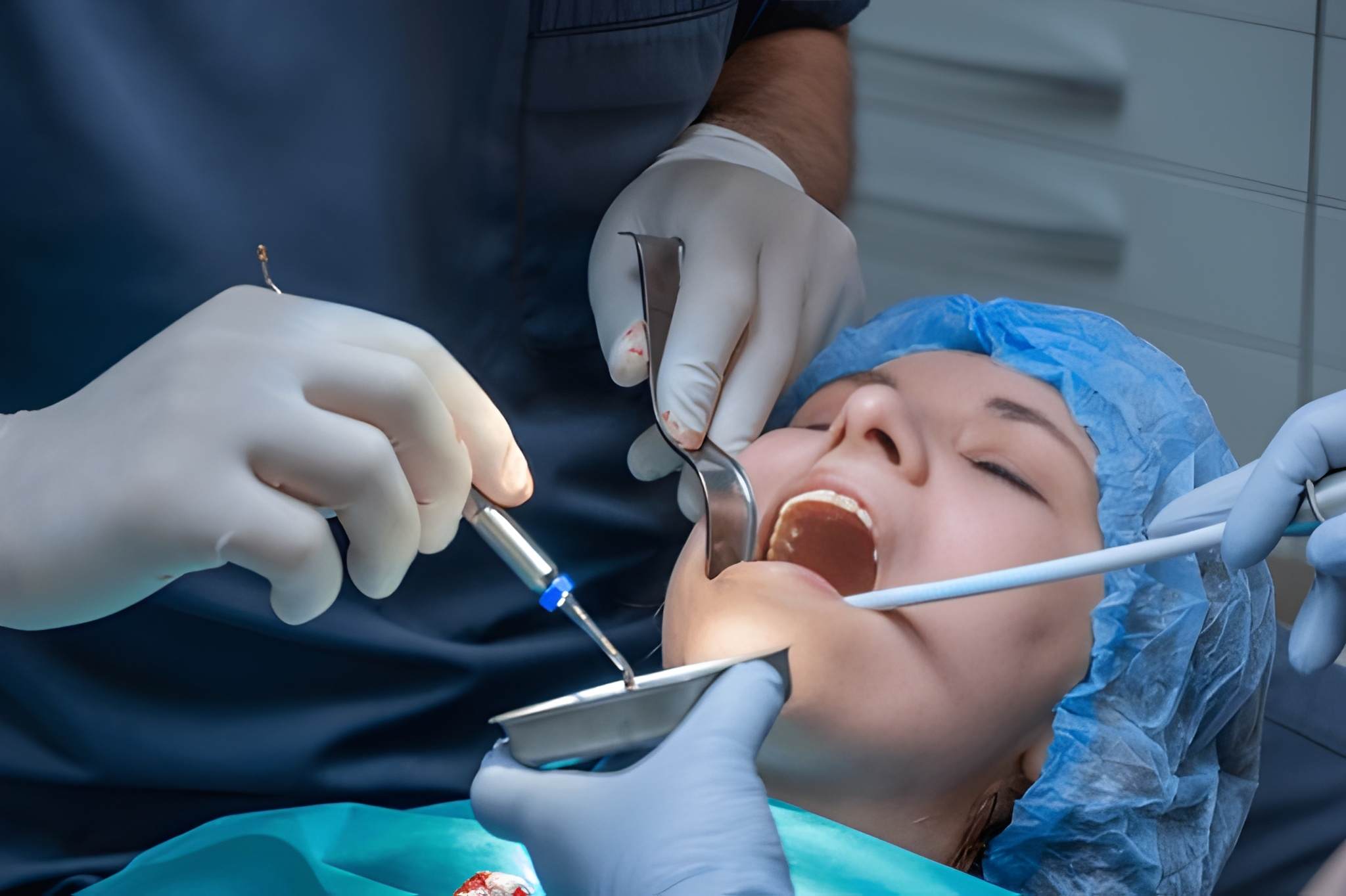Dental implants have become a popular solution for tooth replacement, being durable, long-lasting, and natural looking compared to the use of dentures or bridges. However, there are certain requirements required to obtain Dental Implants NHS in Scotland. It is critical to know which criteria are met in relation to NHS dental implant eligibility since eligibility under an NHS is usually for only those with severe medical need. This guide on how to get NHS Scotland dental implants covers everything you should know concerning access, process, cost, and alternatives.
NHS Dental Implants in Scotland: What You Need to Know
Typically, NHS dental implants are not readily available in Scotland unless a clear medical necessity exists. The criteria for NHS dental implants relate more to health concerns rather than to cosmetic considerations. Thus, patients who qualify for NHS dental implants usually have medically defined conditions that markedly affect their ability to eat, speak, or keep their mouth and/or teeth healthy; these could be following cancer therapy, trauma, or severe congenital conditions.
Applicants for dental implants in NHS Scotland have to satisfy strict eligibility criteria, determined by an NHS dentist. This is done only after ascertaining that all other forms of dental treatment available nowadays, including bridges or dentures, have been considered and eliminated as options. In addition to having a medical need for implants, patients have to be able to prove good oral health, abstain from smoking, and follow proper dental hygiene practices among other conditions for NHS funding.
Private treatment, such as is provided by Dental Scotland, is an alternative option for those who are not suitable for these criteria. It offers a more holistic and individual approach to the provision of dental implants.
Although the NHS offers most standard dental treatments, including extractions, fillings, and some prosthetics, it commonly considers dental implants to be a special form of treatment. Consequently, access to dental implants NHS Scotland is limited to patients with serious medical or functional needs.
Can You Get Dental Implants on the NHS in Scotland?
The NHS in Scotland offers dental implants only in particular cases where there’s a clear medical need. This type of service aims to treat serious health concerns rather than cosmetic concerns. Missing teeth can affect the performance of essential functions, such as eating and speaking, although not everyone is eligible for NHS-funded implants. The patients must prove that their condition serves to critically affect their standard of life, like the inability to wear dentures or complications from medical issues.
The National Health Service allocates resources based on medical needs, and the NHS dental implants criteria do not include cosmetic criteria. For example, patients who have lost their teeth due to trauma, cancer, and congenital defects might be considered eligible, mainly if other treatments such as bridges or dentures are inappropriate. The application requires a dentist under NHS Scotland to professionally review the application, document it in detail, and approve it for NHS Scotland.
This ensures that the limited funding is spent on people who suffer the most from failing oral health and functionality. Patients who do not qualify are advised to pursue private services, such as those provided by Dental Scotland, which offer superior quality services with flexible payment structures.
Criteria for Eligibility for NHS Dental Implants
Dental implants on the NHS are funded if carried out for medical necessity rather than for cosmetic reasons. Most funding for NHS dental implants is focused on patients who have:
Mnemonics Reasons to establish a dentate occlusion in a patient for a medical condition include:
- Severe Medical Conditions: If teeth have been lost as a result of cancer, trauma, or congenital defects. Dental implants are considered a means to restore essential functions like eating and speaking.
- Other treatments not possible: Jawbone problems, a poor fit of dentures or bridges, or severe discomfort can all make it so that patients cannot use traditional treatments, which are also considered here.
- Eligibility criteria: Patients must meet NHS Scotland’s health standards before they are seen as eligible. These include having good oral hygiene, no untreated gum disease, and having no medical conditions such as poorly controlled diabetes or bruxism, as these might complicate healing.
- Prioritization of Needs: Given that resources are limited in the NHS, patients who have an unmistakable, medically required need for dental implants are treated first. This would mean patients who have cosmetic concerns, such as purely aesthetic reasons for wanting implants, would more than likely have to seek private treatment.
- Thorough Assessment: An NHS dentist should assess your health, check for the need for any necessary scans, and also ascertain that dental implants are the best option. It ensures that all other treatments like bridging or dentures would be carried out first.
Having to meet the dental implants NHS criteria is a lengthy and intensive process, and many patients ultimately opt for private dental implant services if they do not qualify for NHS funding. If you are in any way unsure of how things stand regarding eligibility, then you should discuss your situation with an NHS dentist who will be able to walk you through the process and help you ascertain the best course of action.
For those patients who do not qualify for NHS, but may need dental implants, private practices such as Dental Scotland use advanced solutions, that include consultation, treatment planning, and flexible payment plans to make the dental implants more accessible to the patient.
How To Apply For NHS Dental Implants In Scotland
If you believe you fit the criteria of having your dental implants on the NHS here’s how you can apply:
- Consultation with an NHS Dentist
Visit an NHS dentist to review your dental condition and talk about your requirements. The dentist will assess if you require implants and if you are eligible to submit your case for consideration. - Application Process
If the dentist is of the opinion that you qualify, they will fill in and forward a comprehensive application form to NHS Scotland. This will involve writing about your medical background and explaining why you require an implant. - Treatment Plan
Once accepted, you will be presented with a detailed treatment plan. This will describe the steps within the treatment, such as the first implant placement, healing time, and then finally attaching the final restoration. - Surgical Process
A specialist will conduct the implant surgery, making sure everything is carried out with great accuracy and to NHS specifications. The healing process usually takes several weeks after which the implant embeds itself in the jaw.
Those who are eligible for Dental Implants NHS Scotland can afford the cost considerably reduced.
The NHS dental fee for implants in Scotland would be around £380 per course of treatment. Some patients like those on some low-income benefits get implants completely free.Private can cost thousands of pounds, making NHS-funded implants an ideal alternative for patients who qualify for it.
Why Patients Are Turned Down for NHS Dental Implants
Not everybody who wants them will be eligible for NHS dental implants. Numerous grounds for refusal include:
- Rotten teeth and gums or other untreated dental conditions.
- Some medical conditions, such as poorly controlled diabetes, bruxism, or blood disorders.
- Smoking and other smoking lifestyles may impede the healing process.
Patients who are turned down for NHS-funded implants might have to consider alternatives.
Alternatives to NHS Dental Implants
For patients who do not qualify for Dental Implants NHS Scotland, several alternatives are available:
- Private Implant Treatment
Private care offers flexibility and access to advanced procedures. Clinics like Dental Scotland provide tailored implant solutions using state-of-the-art technology, such as digital smile design and Cone Beam CT scanning. These options ensure precise placement and excellent outcomes. - Dentures and Bridges
More commonly accessible through NHS services are removable dentures and fixed bridges. Although they do not last as long as implants, they have both practical and aesthetic advantages. - Financing Options
Many private clinics provide payment plans to make implants more accessible. With respect to this, in Scotland’s Dental, patients may spread the cost of treatment over time on different financing options.
Reasons for Choosing Private Implants
There are numerous advantages associated with choosing private implant treatment:
- Quick access to specialist treatment without requiring NHS consent.
- More extensive treatment choices, for example, cosmetic enhancements such as whitening of the teeth or veneers.
- Aftercare, including longer-term maintenance.
Private clinics, such as Dental Scotland, offer a personalized experience, placing much emphasis on the comfort of the patient and satisfaction.
Why Dental Implants Are a Good Investment
Dental implants are a transformative solution for those suffering from tooth loss. By mimicking the function of natural teeth, implants improve chewing ability, enhance facial aesthetics, and prevent jawbone deterioration. For many, the long-term benefits far outweigh the initial costs.
Whether accessed through the NHS or private care, dental implants provide a lasting solution that promotes oral health and overall well-being.
Conclusion
The first step towards getting your smile restored is to know the conditions for getting implants on the NHS. Although the NHS hardly offers implants to patients, yet the private sector provides comprehensive access to newer treatments. The clinics, such as Dental Scotland, have all services the routine check-up to composite bonding and even to Invisalign procedures.
If you are ready to see options, contact Dental Scotland today to discuss how their team can help you to achieve a confident healthy smile. Their expertise combined with their patient-focused approach ensures that you will be in excellent hands, whether you qualify for NHS treatment or choose private care.
FAQ’s
Can I get Dental Implants through the NHS?
Yes, you can get dental implants on the NHS, but it depends on specific eligibility criteria. The NHS typically provides dental implants for patients who have lost teeth due to serious health conditions like oral cancer or traumatic injuries, or if the missing teeth significantly affect your ability to eat or speak. However, dental implants are usually not covered by the NHS for cosmetic purposes or for patients who are only missing teeth for non-medical reasons.
.
What are the eligibility criteria for NHS Dental Implants?
- NHS dental implants are available to patients who meet specific criteria. These may include:
- Functional impairment (where missing teeth make it difficult to eat or speak),
- Trauma or injury (e.g., teeth lost due to accidents),
- Congenital conditions that cause tooth loss or deformities,
- Post-cancer rehabilitation for oral cancer patients
To determine your eligibility, a thorough assessment by your dentist is required.
Are Dental Implants on the NHS free?
NHS dental implants may be free for patients who meet specific medical criteria, such as missing teeth due to trauma or cancer. However, for general tooth loss not related to medical conditions, NHS coverage is limited, and patients may need to pay for the treatment privately
What alternatives are available if I don’t qualify for NHS Dental Implants?
If you’re not eligible for NHS dental implants, there are alternatives such as dentures or bridges, which are often covered by the NHS. Private options for dental implants are also available, which offer shorter waiting times and a broader range of treatments
How much do Dental Implants cost on the NHS?
NHS dental implants are usually available at little to no cost for eligible patients, particularly those with significant health-related tooth loss. For those who do not qualify for NHS funding, private options are available, with costs typically ranging from £1,500 to £2,500 per implant, depending on the complexity of the procedure.





